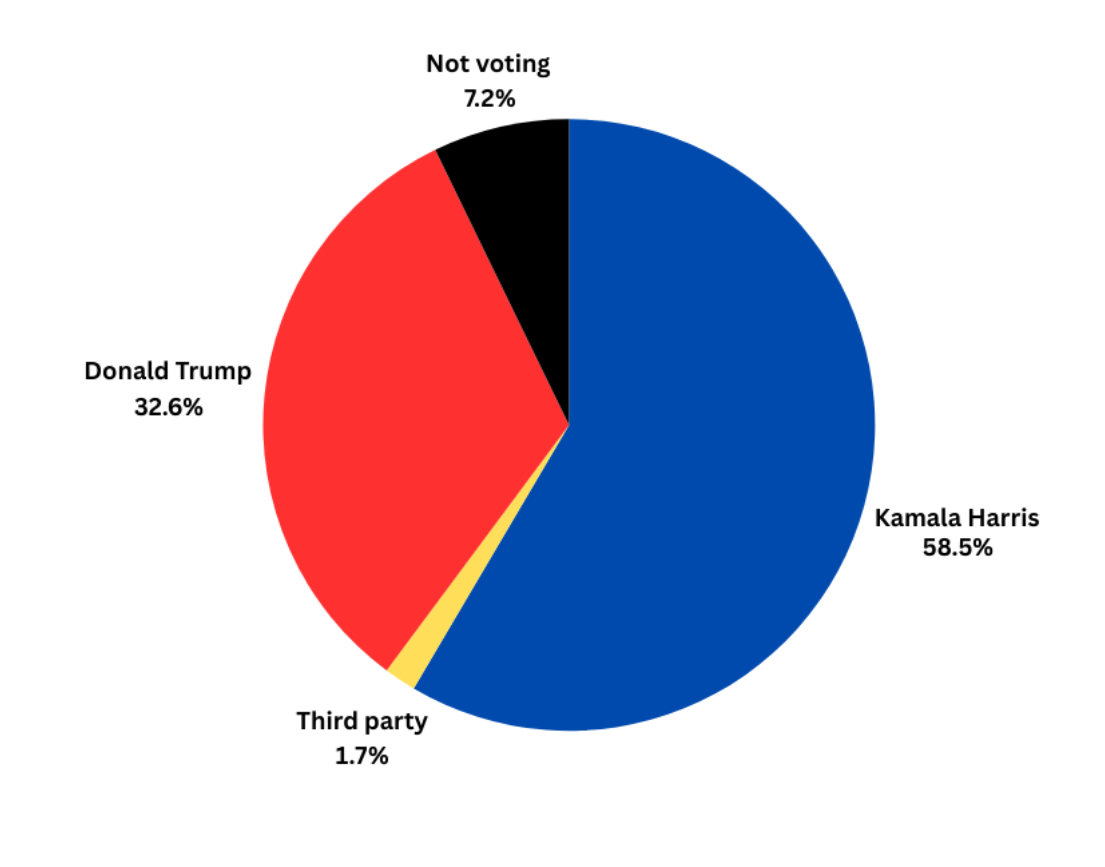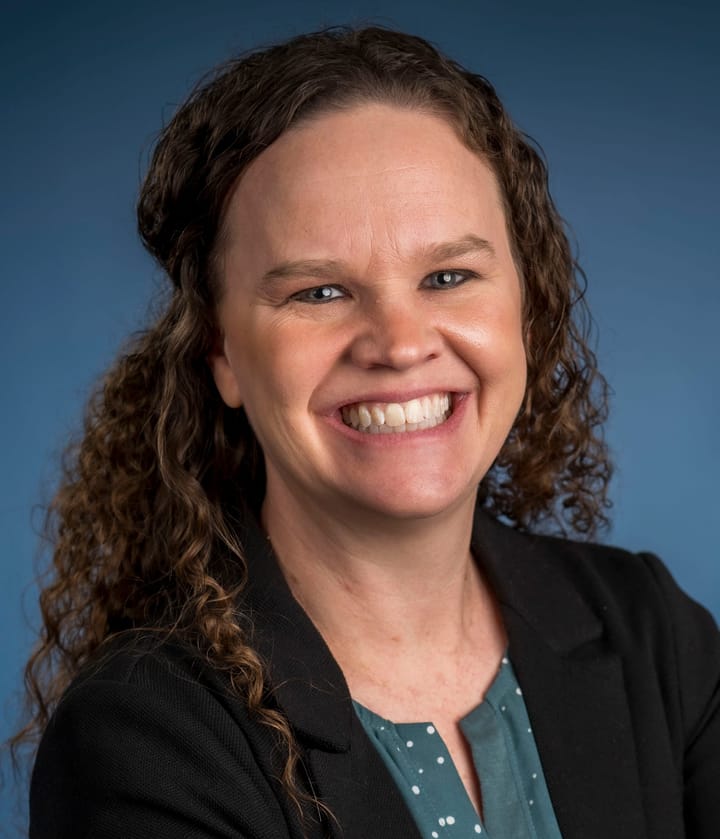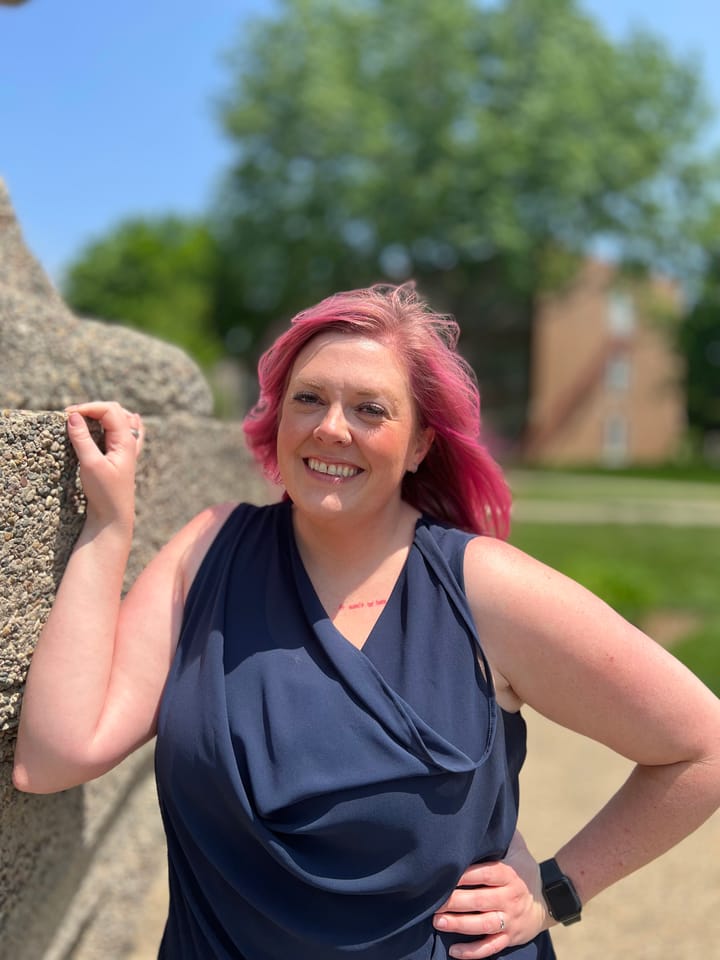Government class poll reveals trends

Results are in from the first of three polls of the undergraduate student body, and the students from Elections, Public Opinion and the Media have begun data analysis.
Though the student analyzers were satisfied with a workable data set, their professor, Emily Wanless, thought that the response rate from 1,967 undergraduate students left something to be desired: just under a quarter of the students to whom the poll was sent provided usable responses – a total of 475.
When a similar poll was conducted in 2020, it had a higher response rate of 38.7%, Wanless said.
Wanless said another reason she is “hesitant to draw a lot of concrete conclusions” from this data was that 90% of respondents said they are registered to vote or will be by election day, indicating that those who did respond might be among the most politically engaged students on campus.
However, Wanless noted that regardless of the high proportion of likely voters, a quarter of all respondents said they do not feel like their vote matters.
“A quarter of the student body that is the most politically engaged took that poll, and still, a quarter of them felt like their vote didn’t matter,” Wanless said. “Those are the types of things that I think are important that come out from a poll like this.”
Wanless urged all students to participate in the upcoming polls, regardless of whether they consider themselves particularly opinionated or involved in politics.
“The point of the poll isn’t to see who is going to win on election day,” Wanless said. “The point is to gauge your feelings.”
Junior Sophie Bernhard is one student who took the poll.
“In the current political climate we’re in, it’s really hard to have a normal discussion about politics,” Bernhard said. “I thought that maybe [the poll] would encourage people to have a more calm discussion instead of just trying to argue why their side is better than the other.”
Top issues for student respondents were the economy (36.7%) and reproductive rights (36.33%). Coming in third, 15.87% of students cited climate change as the election issue most important to them. Harris led in reproductive rights with 63% of students strongly or somewhat approving of her positions compared to Trump with 23.8%. On the economy, Trump has 40.5% approval, slightly less than Harris’ 41.5%, though Trump has more people who strongly support his economic positions, 23.6% to Harris’ 13.2%. 58.5% of respondents said they would vote for Harris, and 32.6% said they would vote for Trump.
Senior Abbie Grupe and sophomore Melissa Avelino dos Santos lead the analysis on the polls. While Avelino dos Santos focused on selecting questions to include by asking her class what data they were most interested in, Grupe transcribed survey data into charts and graphs.
Grupe mentioned that one of their classmates’s service-learning groups has since approached them about the comparison of a respondent’s voter registration status and whether they think their vote matters; Avelino dos Santos added that the intersection of the data on “gender and abortion” is another point of interest.
“We didn’t get to do a whole lot of that [cross analysis] this time just because we didn’t know what people wanted,” Grupe said. “I think the next couple times we’ll be sure to kind of do more cross-analyzation for the class to use because that’s what they had kind of said they wanted more of.”
All student groups in the class will be able to use the data in hosting an informational event. Upcoming events include a roundtable discussion with Sen. Mike Rounds and Augustana President Stephanie Herseth Sandlin on Oct. 28 at 3 p.m. in FSC 113; a session on responsible media consumption on Oct. 29 at 6 p.m. in the Wagoner Hall multipurpose room; an election watch party on Nov. 5 at 6 p.m. in FSC 113 and a reflection on election outcomes on Nov. 13 at 4 p.m. in Madsen 202.
The second of three polls will now run from Oct. 30 to Nov. 1, a recent change to the polling schedule



